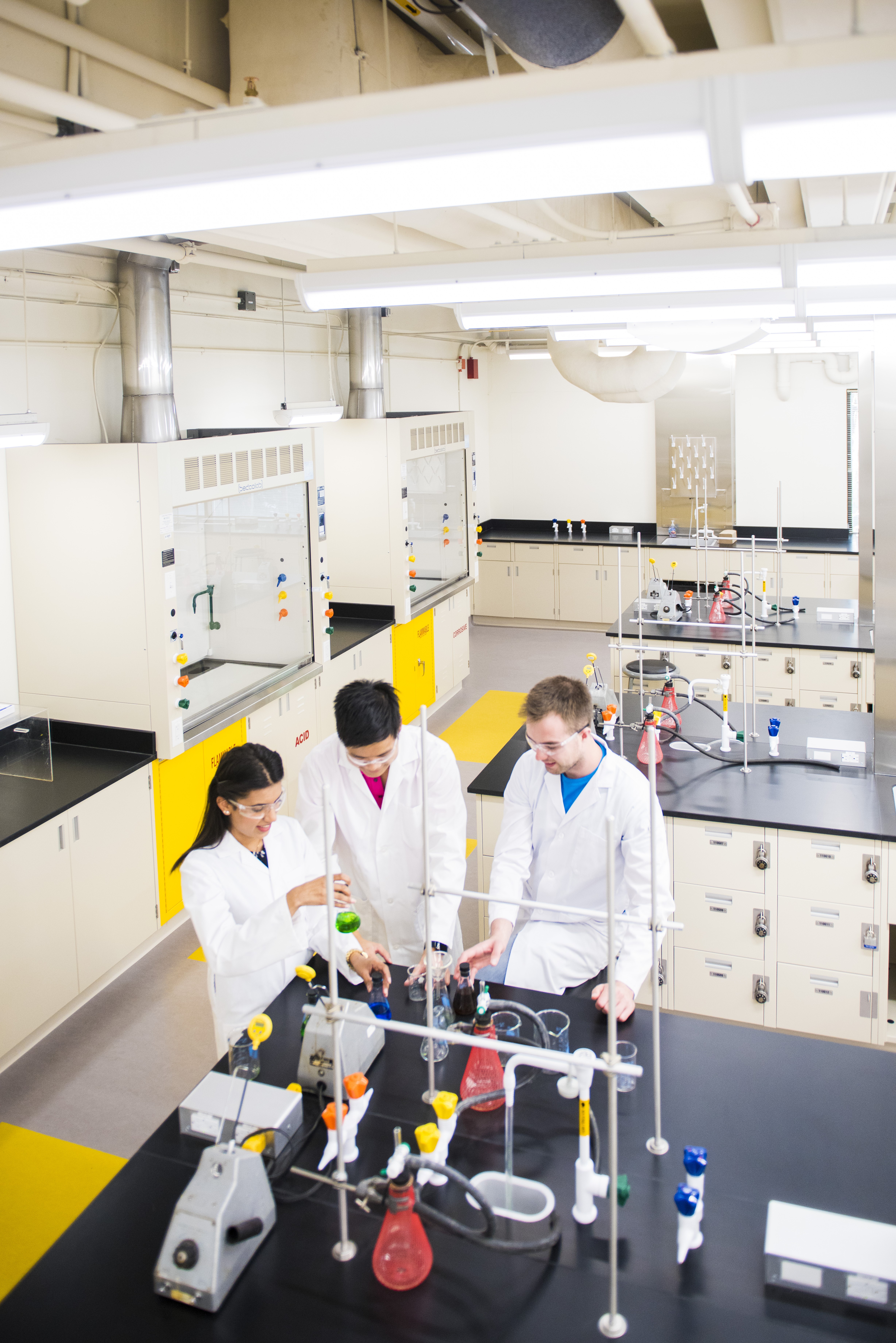A new initiative, in partnership with the Gilead Foundation, aims to dismantle barriers to STEM education for underrepresented students
Donna McKinnon - 9 May 2024
Each year, more than 3,000 undergraduate students at the University of Alberta — one tenth of the entire undergraduate population — are required to take chemistry labs as part of their educational journey. Chemistry courses are the gateway to many STEM majors but data shows that poor performance in these courses has a disproportionately negative impact on underrepresented students — including female, BIPOC, rural, socio-economically disadvantaged and first-generation students — who continue to face many barriers in the pursuit of a STEM career.
Dismantling these inequities requires a comprehensive approach at the very start of the students’ post-secondary journey to help them reach their full potential and be a catalyst for transformational change in their communities and beyond.
With the support of the Gilead Foundation, a new initiative — IDChem — is tackling these challenges head on, with the goal of reducing systemic barriers and providing students with the necessary mentorship and tools to succeed. The U of A’s corporate and philanthropic relationship with Gilead Sciences and Gilead Foundation is a decades-long partnership committed to student success and STEM research excellence.
“The Faculty of Science and the Department of Chemistry are delighted that the Gilead Foundation is interested in furthering our long-standing partnership by providing instrumental support to IDChem,” says Declan Ali, Dean, Faculty of Science. “It’s an initiative grounded in the values of equity, diversity and inclusivity with the goal of facilitating underrepresented students’ access to learning resources, experiential opportunities and networking support.”
Gilead Foundation’s $375,000 funding investment over two years to IDChem will provide the instrumental support to accelerate the development of a more inclusive and diverse STEM talent pipeline, and will be guided by three strategic, inclusivity and diversity pillars:
- Equitable Learning: Graduate Teaching Assistants (TAs) will provide comprehensive tutoring support to students who are struggling to complete their Chemistry requirements to successfully continue their STEM program.
- Experiential Learning: Summer and annual studentships in chemistry research labs will ensure students from equity deserving groups can earn a fair income while developing the competitive skills needed to succeed in the global marketplace.
- Mentorship and Capacity Building: A collaborative and inclusive space for students, early career scientists and experienced professionals, the IDChem Lounge will provide a centralized point for visiting speakers dedicated to EDI, academic and career workshops, and STEM-focused grassroots organizations (UAWIC, UA-WiSE, and WISER) to share experiences and build their collective capacity.
These pillars resonate strongly with the Gilead Foundation, whose vision and mission is predicated on building a healthy, equitable and prosperous society.
“What drives progress and success at Gilead is our scientific innovation,” says Federico Pacheco, Senior Manager, Gilead Foundation. “There continues to be a big need to build a pipeline of diverse talent for future innovation, particularly in the science field and STEM fields in general. A diverse workforce provides the potential for innovation by leveraging different backgrounds, experiences and points of views.”
In STEM occupations, certain groups of people continue to be underrepresented. The underlying factors can be systemic and hard to break down, but as Pacheco notes, there are some things that are controllable, like increased exposure to STEM field careers.
“As a science company, we not only want to spark an interest in science, but we want to make it equitably accessible,” says Pacheco. “In addition to enabling access to underrepresented students in the field, we must also provide them with the academic, financial and social support needed for them to succeed. We are proud partners of the University of Alberta, and one thing that stands out with the IDChem programming is the three-pronged approach that supports students through their educational journey — ensuring that they successfully complete the program and degree. It's important for us to partner and work together in these efforts.”
Want to support building a more inclusive and equitable STEM workforce? Contact Liz Hasham, assistant dean (development), to learn how you can support IDChem and help break barriers in the way of underrepresented students.
